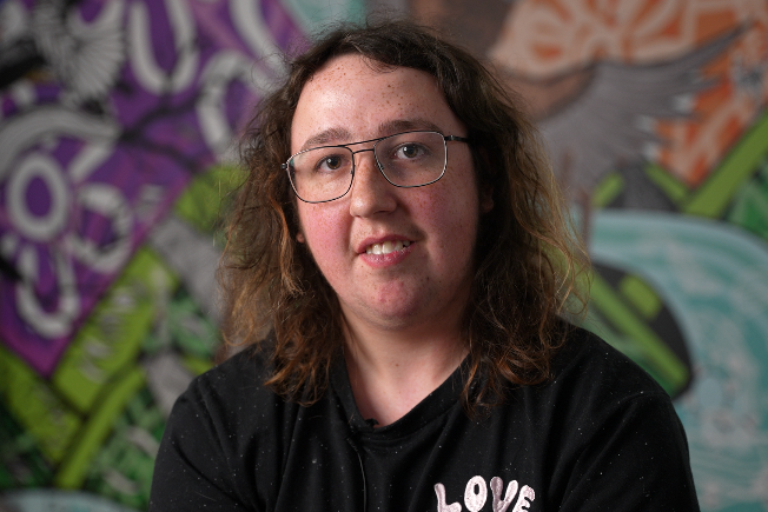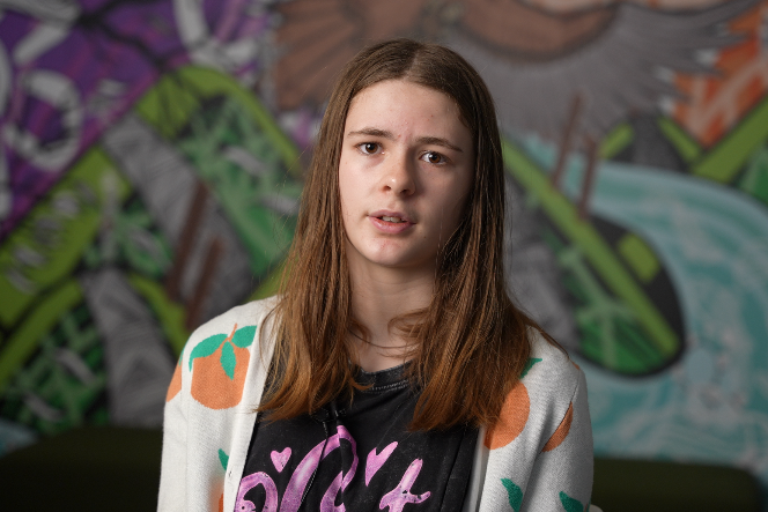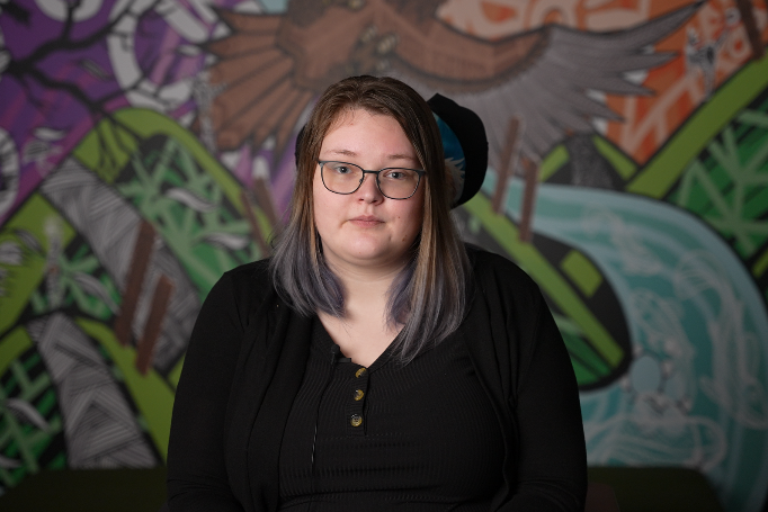In this written piece, Rhiannon shares her experience of advocating in health professional settings.
As someone in their mid-twenties who has seen more doctors’ waiting rooms than clubs or airports, there are a couple of things I’ve learnt along the way that I wish I knew when I began my chronic health journey.
Before you see a doctor or other health professional
- Write down your symptoms and track them as much as you can. It doesn’t have to be in-depth but I write down ‘on this date I had stomach and back pains and headaches” and write down what I’ve done that day briefly such as what I’ve eaten, if it was not a very mobile or active day, my wellbeing and mental state that day, and my social life. After doing this for some time you may notice certain things that trigger your symptoms or make them worse, or what patterns, habits etc that have helped ease symptoms and improve your wellbeing.
- The internet is your best friend, and so is word of mouth, and research, research, research! Whether it’s the correlation of all your symptoms or searching for a specialised practitioner, the internet has taught me more about my body than any GP ever did. The internet also helped me find online communities experiencing the same symptoms or diagnosis I do, helping me feel less alone in this especially as a young person we might feel isolated and not “normal”
Research, where to start
- If you can, look into your family’s background. Did your grandma always have a bad hip? Played off back in the day as just a “bung hip”? I now recognise my grandma and her mother’s “bung hips” were in fact the diagnosed bone issue I have in my hips that had not been known or researched back then (even our parents and aunties and uncles generation not just grandparents). Yet when I was first diagnosed I could not think of anyone I knew with the same diagnosis. while they may not have had diagnosis or awareness of what the issue is, their symptoms can help support your own advocacy with treating health professionals while making some sense for yourself and also helps alleviate these feelings of isolation and “what’s wrong with me?”
- Not all diagnoses and conditions are genetic or run in families but knowing any little details can help, if you’re lucky enough to have this information.
When you see a doctor or other health professional
- We should not have to prove ourselves. We should be believed from the get to but this is not always the case.
- It could be something short, like “Here are some things you could do to advocate for yourself with a doctor or other health professional.”
- Unfortunately a major part of seeing health professionals is fighting to be heard and believed, let me make it clear, we should never have to prove ourselves, we should feel safe enough that we can present with symptoms and issues and our health professionals will believe us and begin creating a course of action, unfortunately a huge part of the health process is having to convince health professionals that something is going on with your health. This is not always the case but sadly more often than not in our community, medical gaslighting is frequent so heres some ways I have personally learnt to advocate for myself to doctors or health professionals and I hope by sharing this, that someone else may feel less in the dark and less alone than I did when I first began my health and wellbeing journey.
- Advocate for yourself. This can be as simple as telling the GP you have this pain, this symptom and this ongoing and reoccurring issue. Make sure they note this down on your records, and let them know you have been tracking these symptoms.
- If a doctor tells you what the issue is, or denies that you have an issue that you thought you might or states no you don’t have x y and z, it’s important to insist they write this on your file. This can lead to them taking further steps to ensure that you definitively do not have this specific diagnosis. Once it’s written on your record it is then on the doctor’s word and not your “hearsay.’ This can help back you up with other health professionals or specialists etc which can help ease some medical gaslighting.
- Medical Gaslighting is when a health professional downplays, belittles, dismisses or does not believe your symptoms and health.This can have horrible flow on effects for not just our physical health but also our mental health, for me the medical gaslighting was just the first of many barriers to getting diagnosis’ and treatment. Sadly, those with intersecting identities of marginilised communities experience this the most, medical gaslighting is usually heard when the patient is a woman or gender diverse person, so when an individual has intersecting identities this just can lead to more compounding barriers and that may show up as medical gaslighting
- write down for your own records that a doctor denied you had x y or z, or that the doctor refused to investigate it further. Also write down thatrequesting they include their denial on your file led to them investigating further. They have an obligation to prove that what they’re putting on your record is true. They also have to prove they didn’t ignore the information on your record.
- Often, we are told to monitor the symptoms over a period of time and come back if they are still persisting, which can exacerbate symptoms further or leave you with less time to jump on an issue and look at treatment and/or management options. Making sure your records are accurate means that you will have proof that you tried to seek treatment earlier and were told to wait and see.
- You may need to request or demand that you are referred to a specialist, someone who has specific expertise and education in this area rather than a GP.You may have the rare GP who actually knows and cares, but sadly in our system this is rare.
- I often will research specialised practitioners in the area who focus on and have expertise and experience in this area. Coming to them with a specific person/persons or organisations/clinics can also show that you’re not just there for medication which it often feels like, it can feel like they are judging you because you want medications but doing this can ensure they know you’re serious about getting help with this and it’s not just you being there to get pain meds (which are very necessary to many of us yet stigmatised by medical professionals). Even when we have no other options in the short term health professionals can make you feel horrible for requesting it even if they have not offered you any alternatives.
- Our health system is broken. Often, we’re left paying out-of-pocket costs, just for a GP visit, waiting hours in waiting rooms yet being rushed in our own appointments and feeling like no progress has been made. While this is frustrating, knowing that the system is the problem can help you feel less like the doctor does not care.
- Finally, always check if your treating health professional has longer appointment time options so you don’t feel as rushed.
- Disclosing disability and health in Australia is protected by law. The Australian privacy law and practice states that “information, including health information, may be used for the purpose it was collected or a directly related purpose. If it is to be used for any other purpose the person who wishes to use the information must have the consent of the individual” . On this note, you do not have to disclose your health your employer, unless it truly affects your ability to perform the work or affects others. But there are even exceptions in this, of which people aren’t often aware. This lack of awareness can lead to people being pressured by employers to disclose health issues which does not always have a good consequence. It might also cause us to be “othered” in the workplace or school setting when we were not ready to share.
After seeing a doctor/health care professional Find your people
- Joining online and in person communities such as chronic pain groups, your can help create a sense of community and solidarity in your health journey and even offer different perspectives. For example, “Stuff that Works” is a website that collects knowledge from people with lots of different chronic conditions.
- While you may lead totally different lives the people in the community groups also experiences these symptoms, which can aid you in conversations with doctors. Having multiple ways to express and vocalise your symptoms, health and other factors is really important, especially when you have experienced medical gaslighting in the past or have had to deal with lengthy wait periods, sometimes we may not be able to express what is happening to us in a way the doctor understands, or we may not even realise the connection between different symptoms, this is why hearing from others in the disability and chronically ill community is so beneficial as it helps you understand your own health too.
- If you are lucky enough to have a diagnosis, you could join a group specific to your diagnosis.,
- Sharing your story when you are comfortable to can help others open up about their own experiences. Sharing your experiences can also help you feel less alone, or can help raise awareness about this issue and even help forge stronger connections with people if they aren’t aware of your health. It’s important to remember that not ot everyone is comfortable sharing and that is more than okay.
Final thoughts
When I first began taking serious steps and measures to understand my health and ttry to tackle it, I felt so alone, isolated, in the dark, abnormal, everything that could be used to describe someone who has been thrown into a world they don’t know and they haven’t got anyone around them who can relate or give them advice.
I want anyone who reads this to know this: trust your gut! By this I mean that we know our bodies better than anyone else, when you feel like something is different or something doesn’t feel right, or a new symptom is worrying you, but you’re telling yourself not to worry, there is a reason we worry. Now it may turn out that symptom could be something minor or irrelevant but you will never know until you ask and for the longest time, speaking up and standing my ground about my health felt like something that was taboo, as if by disagreeing with a doctor I was going to face penalty or punishment but now it is second nature.
Doctors and health professionals are here to help us and if you feel like you are not receiving the treatment or healthcare you need you should not have to sit idly by and suffer. Advocating for yourself is not just an act that helps you, it helps your support system, your community, your loved ones, health professionals, the list goes on. When you advocate for yourself it is brave, necessary and could be what inspires someone else to advocate for themselves too.
Lets keep our health professionals accountable but also keep them learning, in a world that is constantly evolving our health is too and so too should our health practitioners and by ignoring patients or gaslighting we will create and foster environments where no one wants to advocate for themselves let alone others and silence can lead to further health complications. So if something feels off, bring it up! Encourage yourself and your loved ones to push for second opinions, because either you were right and something is different with your health or hey, you were wrong and either way, you are getting an answer and reassurance.



